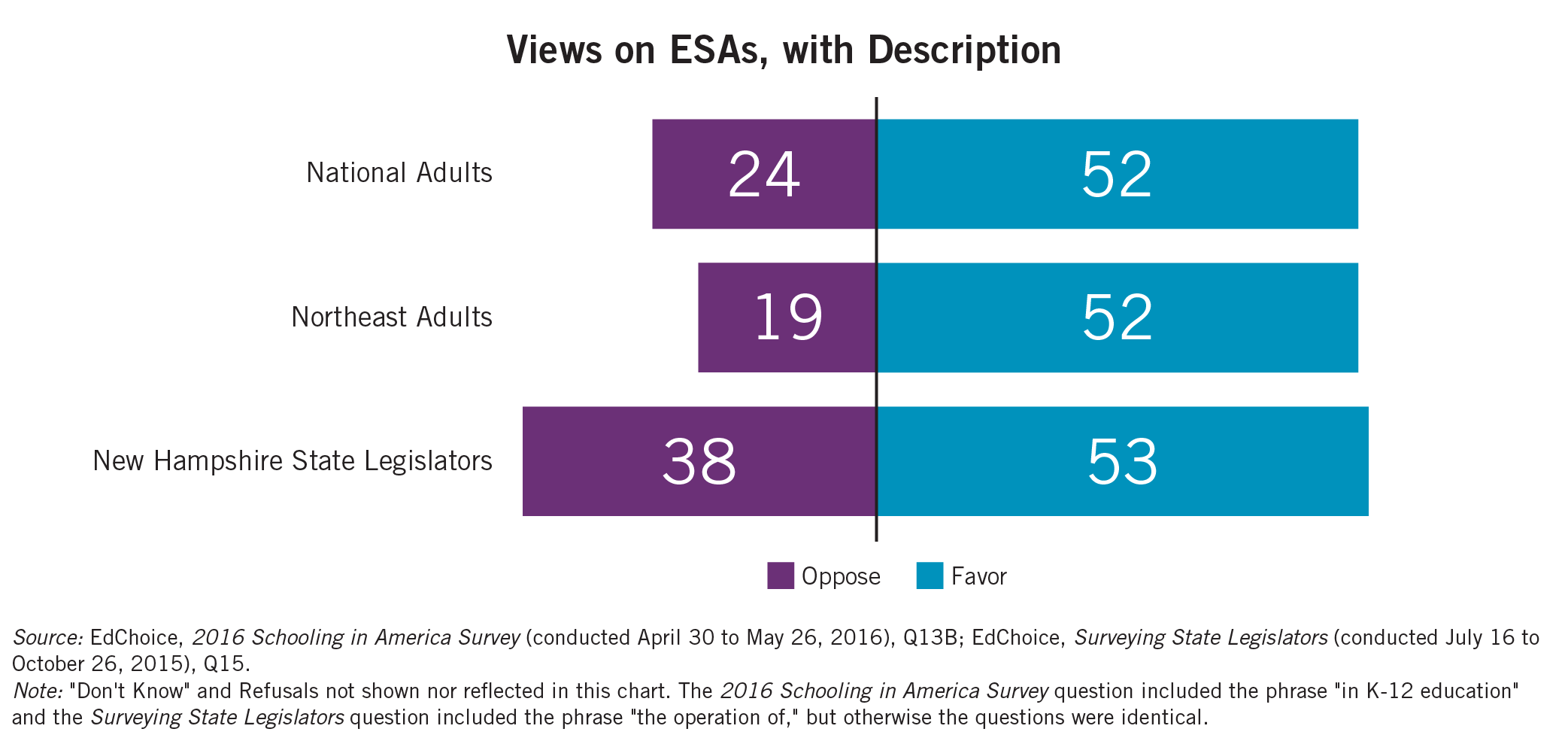New Hampshire bill could create education savings accounts for nearly all K–12 students
A few weeks ago, New Hampshire legislators introduced Education Freedom Savings Accounts in the Senate. The bill, if passed, would set up an education savings account (ESA) program that is open to all public and homeschooled K–12 students in The Granite State.
That’s a vast upgrade from New Hampshire’s income-based tax-credit scholarship program, and the result would be a nearly universal educational choice program!
That bill is also a big step forward from the bill introduced in the New Hampshire House at the beginning of the year for ESAs limited to students with special needs.
The potential program would operate in a similar fashion to ESAs in other states. Here’s how it would work:
Student Eligibility
Students must be residents of the state who are at least 5 years old but not older than 20 and have not graduated from high school. Students must also (1) be currently attending a public school, including a charter school, (2) be incoming kindergarten students or (3) are homeschooled.
Students would not be able to receive both an ESA and a tax-credit scholarship under New Hampshire’s Education Tax Credit Program.
Student Funding
Accounts may be worth 90 percent (50 percent for incoming kindergarteners) of the state’s per-pupil funding amount plus differentiated aid ($3,561 to $8,653 for 2016–17).
Allowable Uses
Funds may be used to pay for:
- Tuition and fees at an eligible in-state public district, charter or private school
- Online learning programs
- Textbooks, curriculum or other instructional materials
- Tutoring services
- In-state community college costs
- In-state higher education expenses
- Fees for testing, including nationally norm-referenced tests, AP exams and college placement exams
- Contributions to a college savings account
- Services for special needs students
- Transportation (up to $750 per year)
Any unused funds still left in an account at the end of the school year may be rolled over to the next school year, which can continue until a student moves out of state, graduates from college or two years after they graduate from high school if they do not enroll in college.
Regulations
Parents must sign a contract agreeing to provide an education for their student in science, mathematics, language, government, history, health, reading, writing, spelling, the history of the constitutions of New Hampshire and the United States and an exposure to and appreciation of art and music.
ESA-granting organizations must conduct an annual parental satisfaction survey, submit both biannual and annual reports, and undergo an annual audit, but participating schools and educational service providers need only furnish receipts to parents and ESA-granting organizations.
What the Research Says
The introduction of ESA bills in New Hampshire is none too surprising considering research EdChoice released last fall, Surveying State Legislators by EdChoice Vice President of Research and Innovation Paul DiPerna. In his report, DiPerna examined the responses of 344 state legislators to questions about education policy, the profession and more. Not included in the report write-up was an oversampling of New Hampshire state legislators, which I’m pleased to share with you now.
The 80 New Hampshire state legislators that responded to the survey were asked if they favored or opposed ESAs. More than half of the New Hampshire respondents (53%) said they favored ESAs and less than two-fifths (38%) said they opposed ESAs. New Hampshire legislators were more likely to say they strongly favored ESAs (38%) than they were to say they strongly opposed ESAs (24%).
The below chart shows New Hampshire state legislators’ favorability toward ESAs and survey responses from our 2016 Schooling in America Survey, using both the entire national sample of 1,001 adults and the Northeast sample of 183 adults. More than half of all adults and adults living in the Northeast favor ESAs (52% and 52%, respectively). Moreover, a smaller percentage of Northeasterners are opposed to ESAs (19%) compared to all Americans (24%). Although every state is unique, it is heartening to see that New Hampshire’s state legislators have generally the same favorability towards ESAs as the rest of the region and the nation.

New Hampshire has a chance to expand personalized learning options to nearly all K–12 students in the state, and we here at EdChoice think the legislators who are paving the way for New Hampshire to become a leader in educational choice are taking a giant step in the right direction.
It’s time for all New Hampshire families to live free and choose their children’s education.




